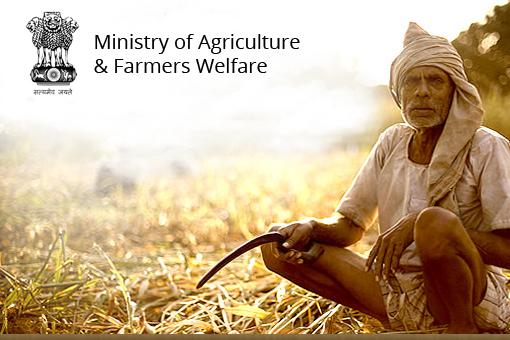KH News Desk (cbedit@imaws.org)
Narendra Singh Tomar, Union Minister of Agriculture and Farmer Welfare, recently opened the National Conference on Soil Health Management for Sustainable Agriculture. On this occasion, Tomar said that due to chemical agriculture and other reasons, soil fertility is eroding and climate change will be a big problem for the country and the world. He said Prime Minister Narendra Modi was concerned about climate change and made plans from time to time and continued to work on those plans. He said Modi is committed to achieving the Sustainable Development Goals (SDGs).
On the occasion of Azadi Ka Amrit Mahotsav and World Soil Day, NITI Aayog in collaboration with the German Federal Ministry for Economic Cooperation and Development (BMZ) affiliated to GIZ, Germany, the main guest Tomar declared that the lack of soil organic carbon is a cause of grave concern for us. To meet this daunting challenge and for better soil health, we must promote natural agriculture that benefits the environment. He said the Indian government, led by Modi, was working with states to promote natural farming. The government has reinstated India’s natural farming system for agriculture. The natural farming system is an ancient technique used by farmers for farming, and at that time, people also knew how to live in harmony with nature, he added.
States like Andhra Pradesh, Gujarat, Himachal Pradesh, Odisha, Madhya Pradesh, Rajasthan, Uttar Pradesh and Tamil Nadu have introduced many innovations to promote natural farming. Over the past year, another 4.78 lakh hectares have been set aside for natural farming in 17 states. To promote natural agriculture, the central government has approved the National Natural Agriculture Mission as a separate program with an expenditure of Rs 1,584 crore. Tomar said that under the Namami Gange programme, the natural agriculture project is underway along the banks of the Ganges, while the Indian Council of Agricultural Research (ICAR) and all Krishi Vigyan Kendras (KVK), universities and Central and state agricultural colleges make every effort to promote natural agriculture.
Tomar said that the Indian government is also working through the Soil Health Card. In two phases, more than 22 crores of soil health cards have been distributed to farmers across the country. Infrastructure development is also underway by the national government under the Soil Health Management Regulations, which provides for the establishment of various types of soil research laboratories. So far, 499 permanent soil investigation laboratories, 113 mobile soil investigation laboratories, 8,811 mini soil investigation laboratories and 2,395 village-level soil investigation laboratories have been established. He said that there was a time when the policy was production oriented, due to chemical agriculture, and agricultural yields have increased, but now the situation has changed and with climate change, it is a big challenge to keep the soil healthy. He said that if you try to exploit the Earth contrary to the principles of nature, the consequences could be dangerous. Nowadays, due to chemical agriculture, soil fertility is affected, and the country and the world should avoid it and take responsibility for the environment.
During the conference, NITI Vice-President Aayog Suman Berry, Member Prof. In attendance were Ramesh Chand, CEO Parameswaran Iyer, Senior Adviser Neelam Patel, Vice Chancellor of Central Agricultural University, Jhansi, Dr AK Singh and Drik Steffi’s along with various scientists, policymakers and other stakeholders. During the conference, several technical sessions were attended by experts.







